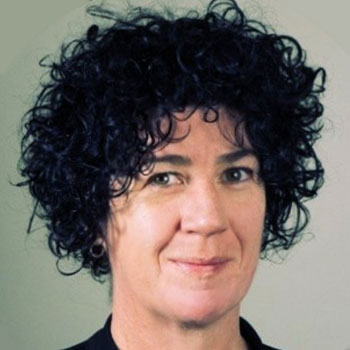Counting on U provides mental health support in tough times
Content Summary
- Mental health
- Public practice

This article was current at the time of publication.
Accountants and business advisers have been the first port of call for many clients across Australia dealing with difficulties as a result of COVID-19.
Although practitioners in Victoria and New South Wales have arguably borne the brunt of this, CPA Australia members everywhere are often broached on subjects that go way beyond advice on how to manage a business.
However, knowing how to have a conversation about someone’s mental health can be tough. Uncertainties brought on by the pandemic have caused people to struggle to make sense of what the future may hold.
Having relevant knowledge to assist not only clients but employees as well, is crucial to being able to offer help when it’s needed.
Business advisers have been identified as uniquely positioned to provide mental health support to small-to-medium enterprises, which has led to professional support for members to ensure they can recognise red flags and assist their clients, employees and themselves in dealing with mental health issues.
The Counting on U training program piloted in February 2021 has delivered four rounds of training. It will continue into 2022, says Professor Andrew Noblet, Department of Management, Faculty of Business and Law at Deakin University.
“The uptake has been very good and all states and territories well-represented,” Noblet says.
So far, 2762 people have enrolled for the course.
“The feedback has been that mental health first aid training is certainly beneficial in terms of how to have difficult conversations with clients,” Noblet says.
“People feel they have a framework they can follow.”
Starting the conversation
For Sarah Lawrance CPA, CEO and Director of Hot Toast, a Sydney-based bookkeeping and accounting practice for the creative services industry, the support offered through the program couldn’t have come at a better time.
It has indeed given her a framework through which to help her clients and staff have conversations about mental health and provided much needed support and advice on where to go for help.
“With New South Wales going through lockdown, we’ve had people once again reaching out for help from us,” Lawrance says.
“There is no doubt the past 18 months have been tough. The conversations accountants have been having are not the usual ones we have.
“The training was very valuable for me – it helped me use the right language and to be able to identify when I need to help someone seek the support they need. We are not here to fix the problem, but it is so useful to be able to point someone in the right direction.”
Tools that can help
Together with online sessions, downloadable resources, and videos, Counting on U has provided her with simple tools to confidently talk about mental health issues.
“Accountants love a process – if you give me a process, I will follow it,” Lawrance says.
“As a profession, we are all working crazy hours and it’s great that we’ve got the support of other people in the industry, but being able to lean on that framework and be more than a sounding board is very useful.”
Noblet emphasises that when starting a conversation about someone’s mental health it is important to be genuine and to follow up with more queries, without probing. The Counting on U training program helps with this.
“I think there is a tendency to be quite superficial when asking ‘how are you going?’ and the instinctive answer is ‘I’m fine’. What the course is trying to emphasise is that it is important to ask further questions to show that you are genuinely interested in how they’re going and whether they are experiencing issues they’re having trouble dealing with.”
Noblet says the success of the program is encouraging, with participants reporting they have retained their new knowledge months after completing the course and using it daily.
“The levels of satisfaction in terms of the relevance of the course and being able to confidently practice mental health first aid are very good,” he adds.
For example, 96 per cent of participants either agree or strongly agree that they can now recognise signs that someone may be developing a mental health problem or experiencing a mental health crisis. Ninety-three per cent believe they have the confidence to ask a person if they have thoughts of suicide and then know what to do with that information.
Lawrance says the support provided has been instrumental to the team at Hot Toast being able to get through some very difficult months.
“I'm a big champion of the program,” she says. “I think at least one person [from a practice] should look at doing the course. It can only benefit yourself and your clients and ultimately your business as well.”
Anyone suffering from anxiety, depression, or any mental health issues can receive immediate 24/7 support by reaching out to Beyond Blue on its national helpline 1300 22 4636.
Discover more
Disconnect from work: ways you can avoid burnout
3 March 2025 | Disconnecting from work isn’t always easy, even with right-to-disconnect laws. These practical strategies will help you achieve a healthier work-life balance in an always-on world.
- Mental health
Published on7 min read timeHow to avoid burnout and improve your wellbeing
20 November 2024 | An essential self-care guide for finance and business professionals
- Mental health
Published on24 min read timeWorkplace stress: new report’s alarming findings
21 November 2023 | Explore Gallup’s 2023 report into Australian and New Zealand workplaces
- Mental health
Published on21 min read timeClients under pressure: how to help their mental wellbeing
A new resource for business advisers helps guide talks with clients about their mental wellbeing
- Mental health
article·Published onHow investing in mental health is good for business
16 February 2018 | Discover ways to reduce mental health risks in the workplace
- Mental health
Published on30 min read timeMental health and wellbeing
Access resources that support mental wellbeing in the workplace for you, your staff and your clients
- Mental health
- Public practice


